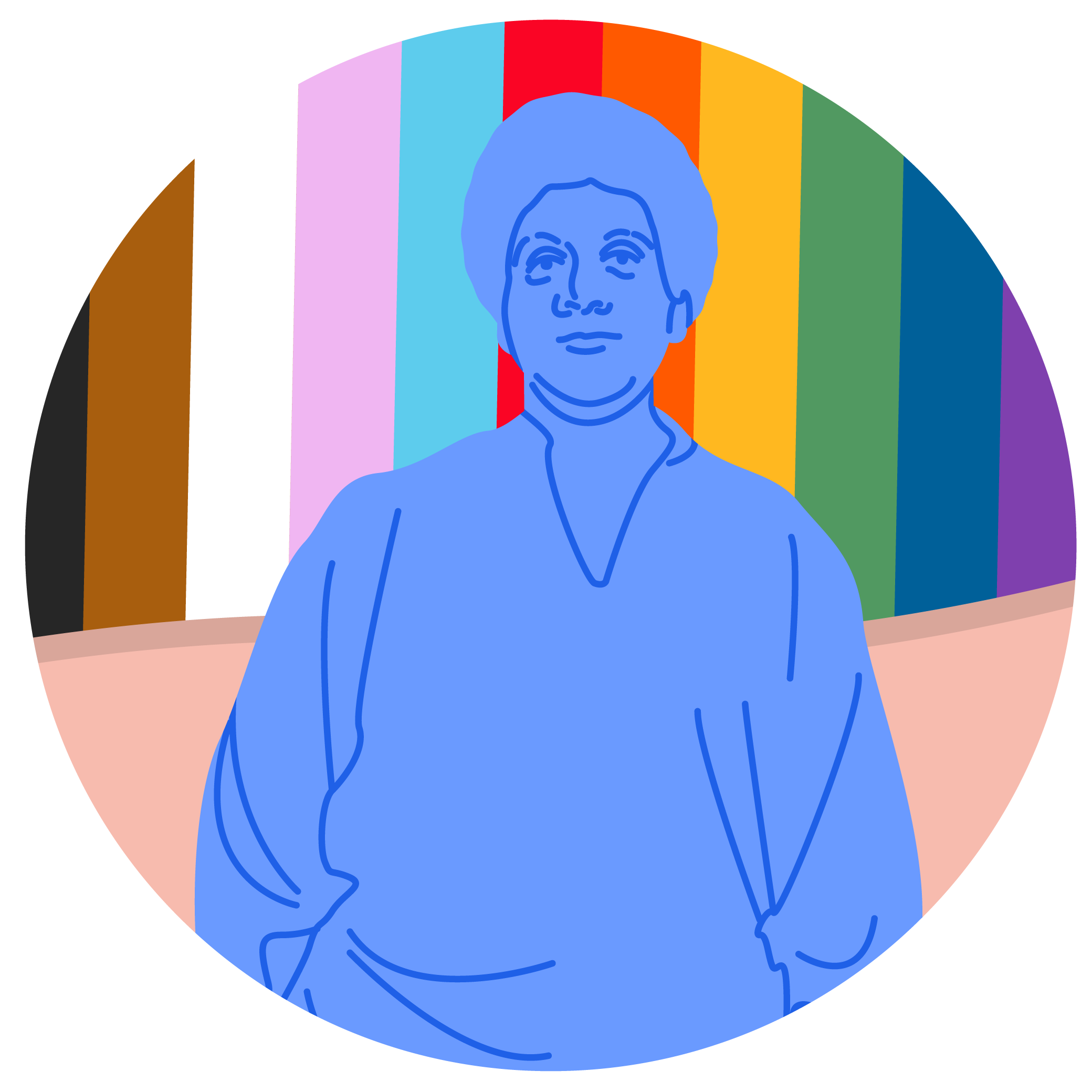Groundbreaking LGBTQ+ Figures in Science, English & Maths
This pride month we are sharing the stories of some of history’s pioneers for each of our three core-subjects. Below are accounts of LGBTQ+ figures who have helped to pave the way for future generations in their field, by standing up to homophobic, patriarchal and racist narratives.
Science: Dr Bruce Voeller (1934 - 1994)
Dr Bruce Voeller was a biologist and activist, whose work in both areas helped to educate the American public about AIDS. Voeller co-founded The Mariposa Education and Research Foundation in 1978, where he was involved in significant research into how to prevent the transmission of sexually transmitted diseases. In a wider sense, the Mariposa helped to change negative attitudes towards LGBTQ+ people through helping to battle the misinformation that was being spread at the time, particularly about AIDS, that was based on prejudice and fear.
Voeller was an active member of the gay rights movement up until his death in 1994. He was a founding member of the National Gay Task Force, an influential advocacy group who were the first to formally discuss policy related to gay rights at the White House. During his time as a director of this group, he also helped to create an alliance with lesbian groups which led to the creation of the National LGBTQ Task Force.
Although Voeller’s story is mostly one of his successful activism, some struggles in his personal life also ended up leaving a mark on American history. His child custody-battle with his ex-wife ended up becoming a test case for the child-visitation rights of gay parents. The American Supreme Court imposed restrictions to prevent his children from becoming engaged in “any homosexual related activities,” which included preventing Voeller from introducing his partner to his children.
Maths: Dr Agnes E. Wells (1876 - 1959)
Dr. Agnes E. Wells was the Dean of Women and a professor of mathematics & astronomy at Indiana University. Wells lived with her partner, Lydia Woodbridge, a fellow professor at Indiana University. Wells’ work in her field was recognised through her admission to prestigious scholastic organisations such as the Phi Beta Kappa. Her ability to climb the academic ladder at a time when American women and LGBTQ+ people faced even more barriers in the workplace was a story of feminist success.
As well as fighting to advance her own career, Wells was also involved in making education and the workplace more accessible to other women. She was active in many women’s organisations, and even helped to create a $1 million fellowship fund for the American Association of University Women during her time as the association’s national vice president.
Not only did Wells champion women in mathematics and academia, but she was also an advocate for women’s equality in politics. In particular, she fought for equality in the workplace and more acceptance for unmarried women. In 1949, she became the chairman of the National Women’s Party and helped to campaign for the Equal Rights Amendment.
Who knows how many less women there would be in the world today studying and working in mathematics without Wells’ ambitions for them to be included in the field.
English: Audre Lorde (1934 - 1992)
Audre Lorde most famously described herself as a "black, lesbian, mother, warrior, poet,” all of which she proved to be essential to her work as a writer and activist. Lorde’s writing explored her experience as an out lesbian, in both the public and private sphere, in the 70s & 80s.
Although it was still a dangerous time for any LGBTQ+ person to be open about their sexuality, Lorde’s work, from the perspective of a black lesbian, helped to open up much needed conversations about intersectionality. She also helped to change feminist discourse by raising the issue of only hearing the voices of white heterosexual women. An example of this was her book “The Cancer Journals”, where she described her frustration with the silence that surrounded black women’s struggle with illness and pain.
Lorde was an activist outside of her own writing too. She was a speaker at the 1979 National March on Washington for Lesbian and Gay Rights. Lorde also helped to break down barriers in publishing, particularly for black women. She helped to found the “Kitchen Table: Women of Color Press”, one the first US publishers for women of colour, with her friend and fellow feminist Barbara Smith.
A great starting point for engaging with Audre Lorde’s work is through the posthumously published collection of her work titled “Your Silence Will Not Protect You”.



